OPEN ASSEMBLY
Experiments in Aesthetics and Politics








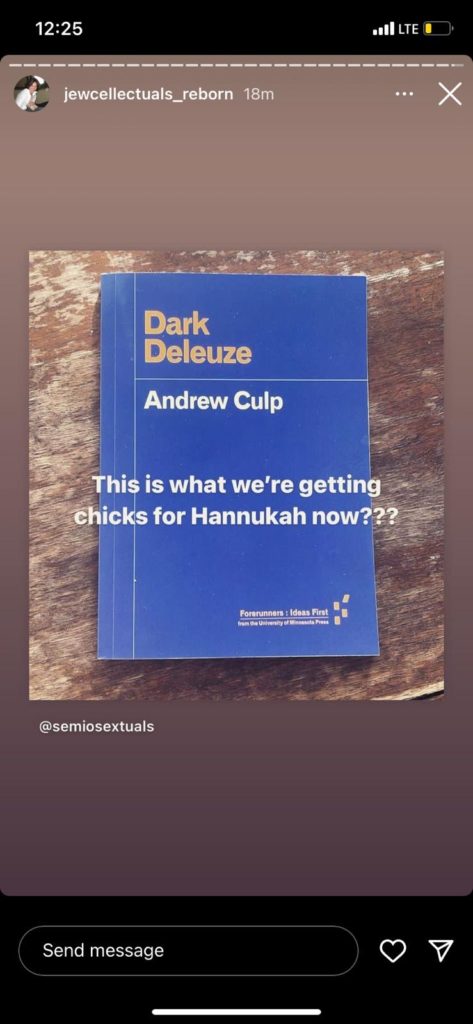
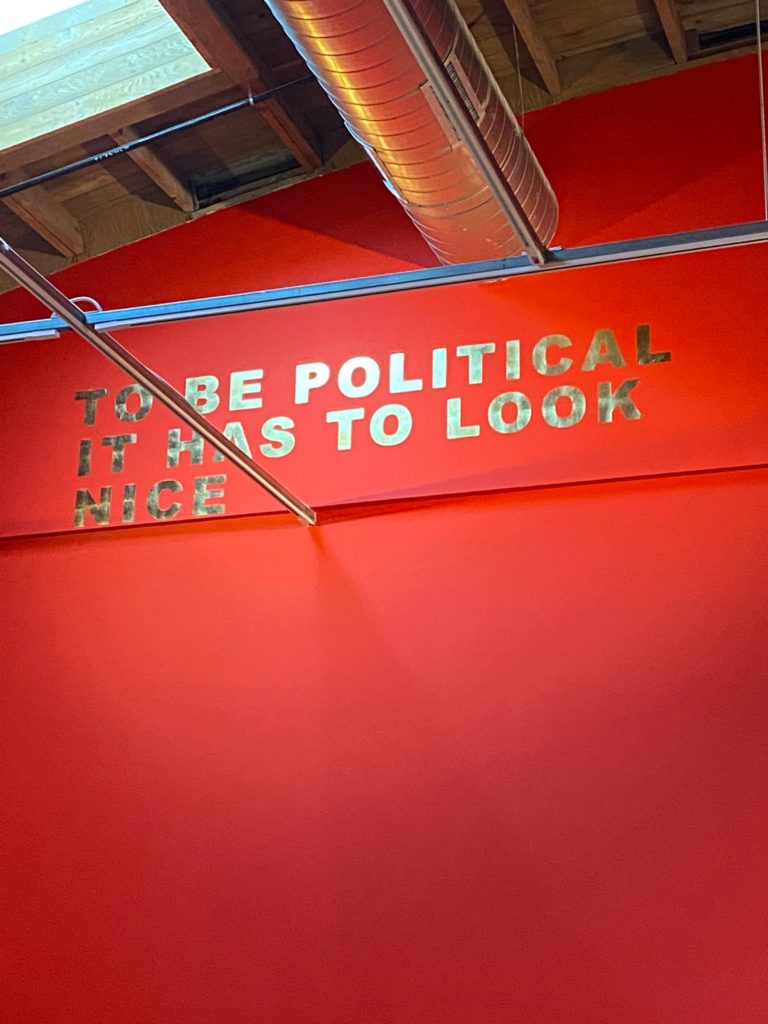
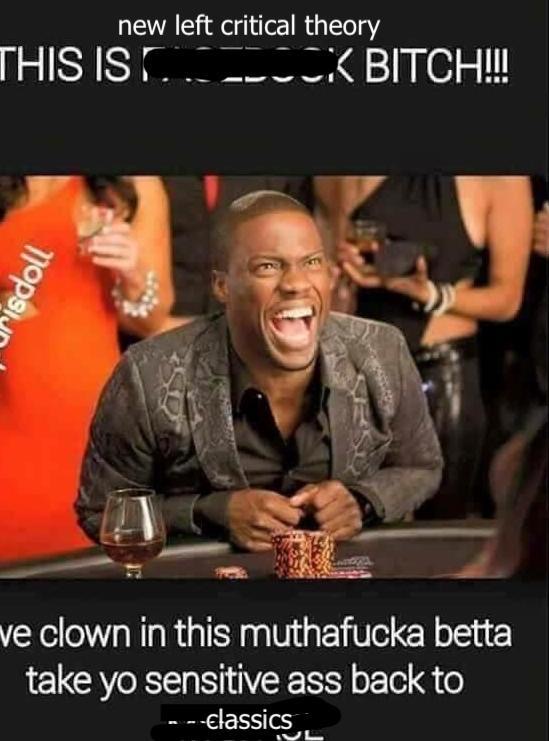
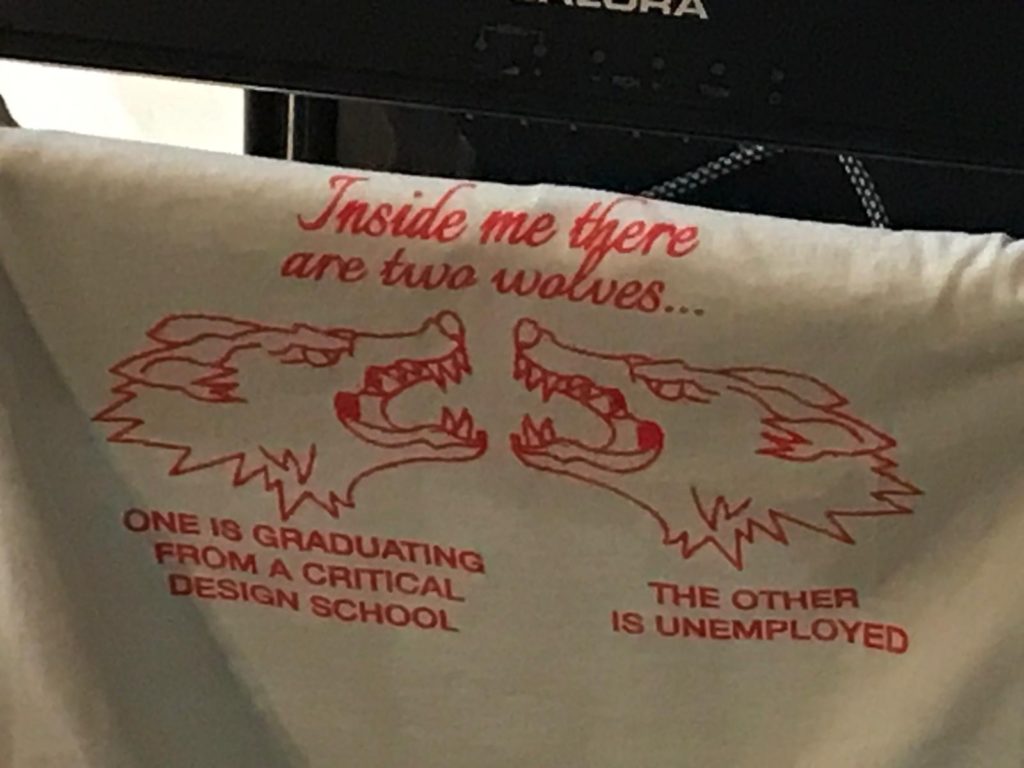
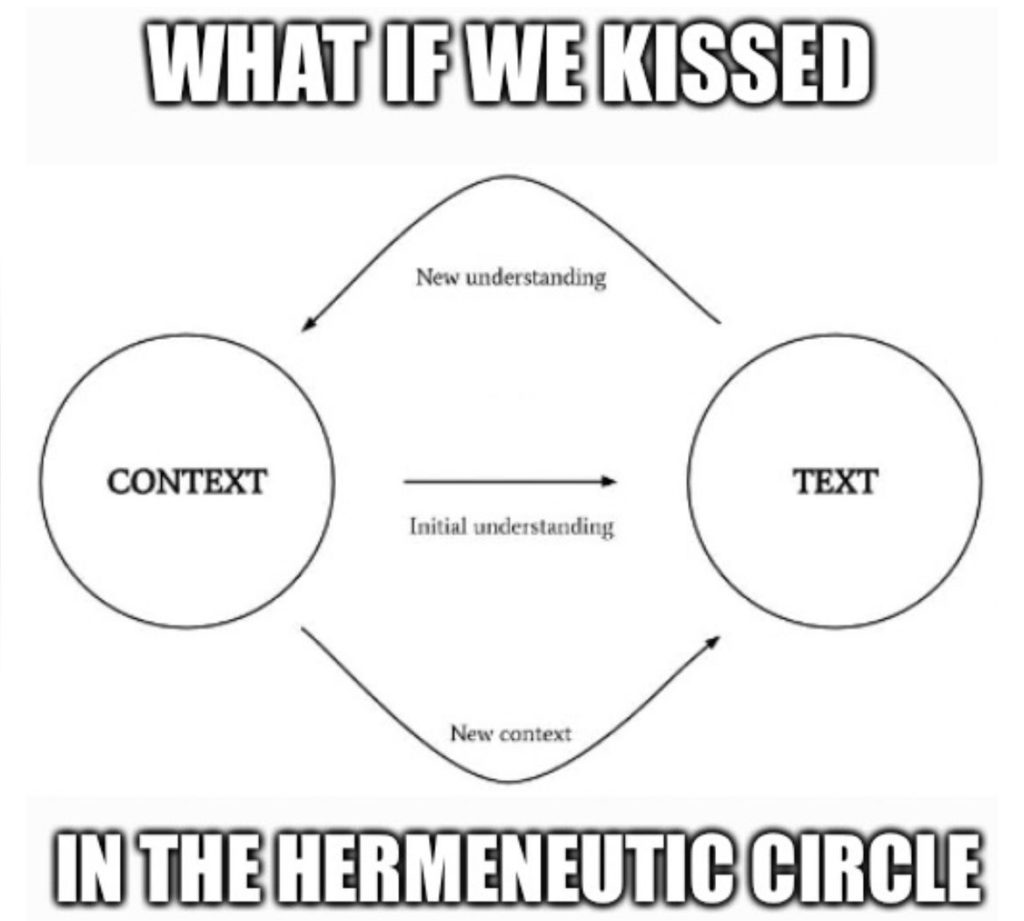

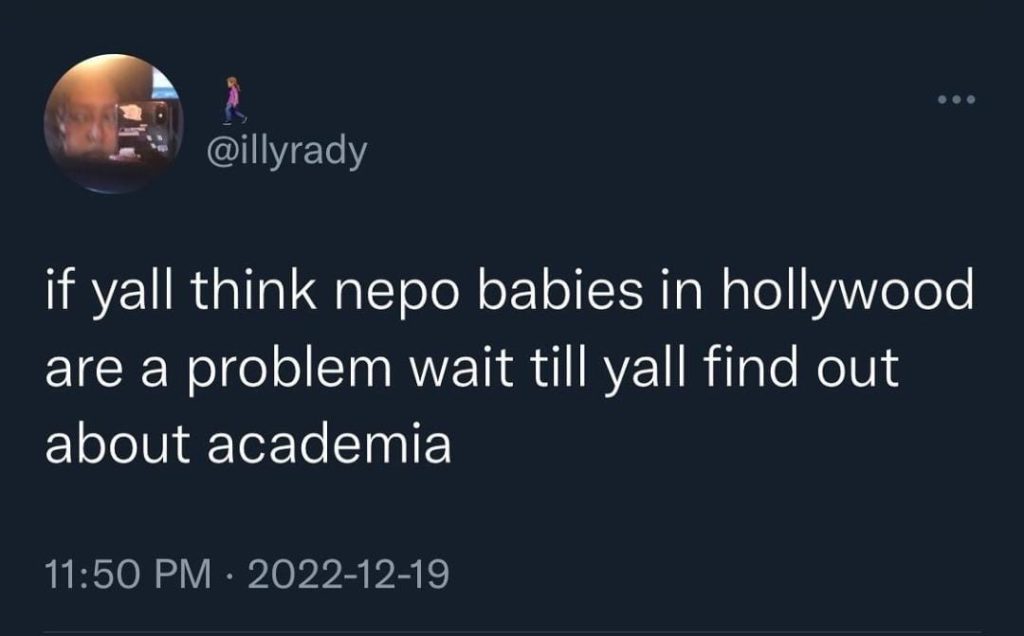
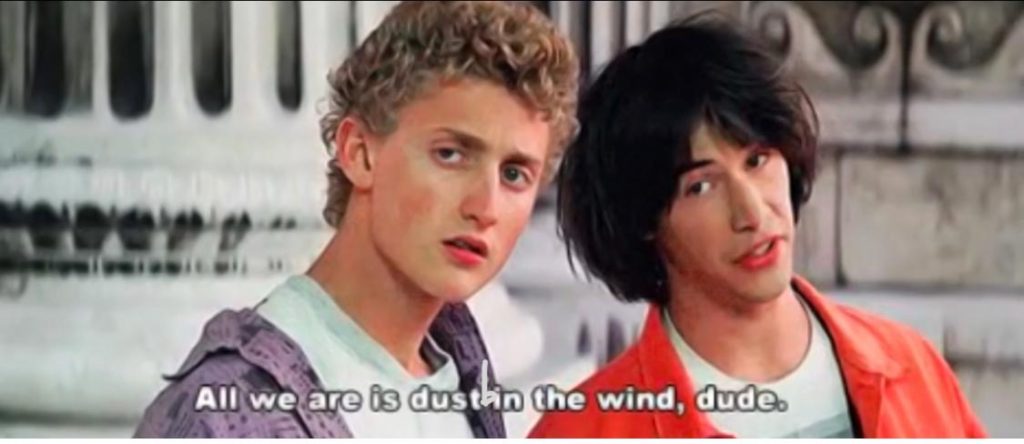




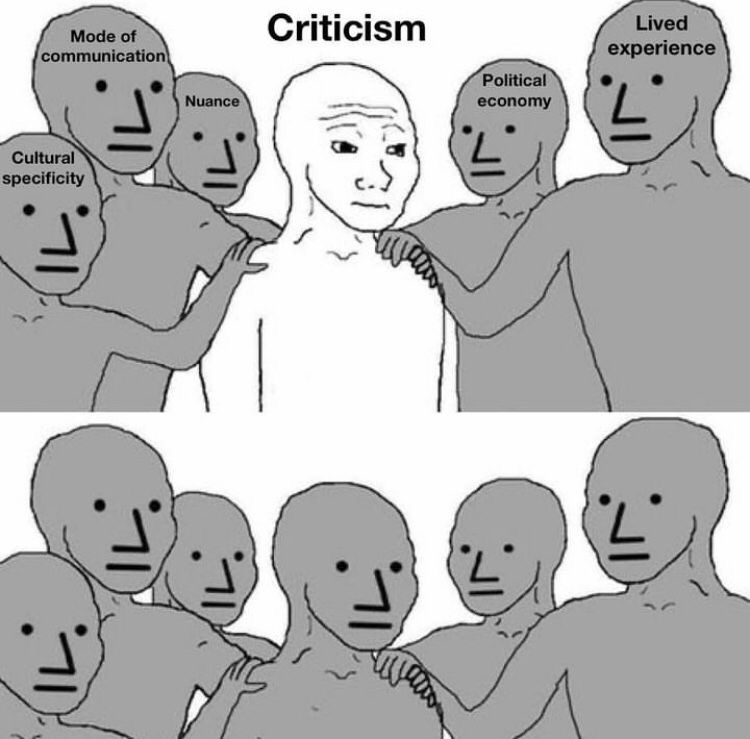
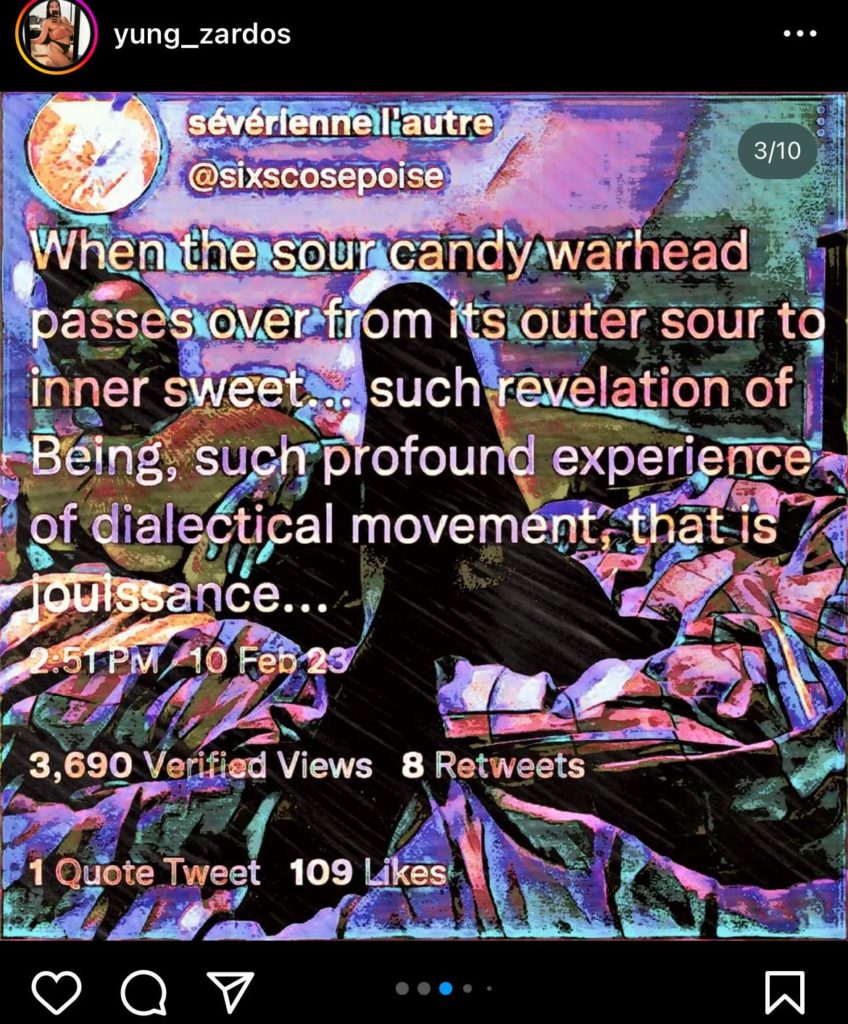
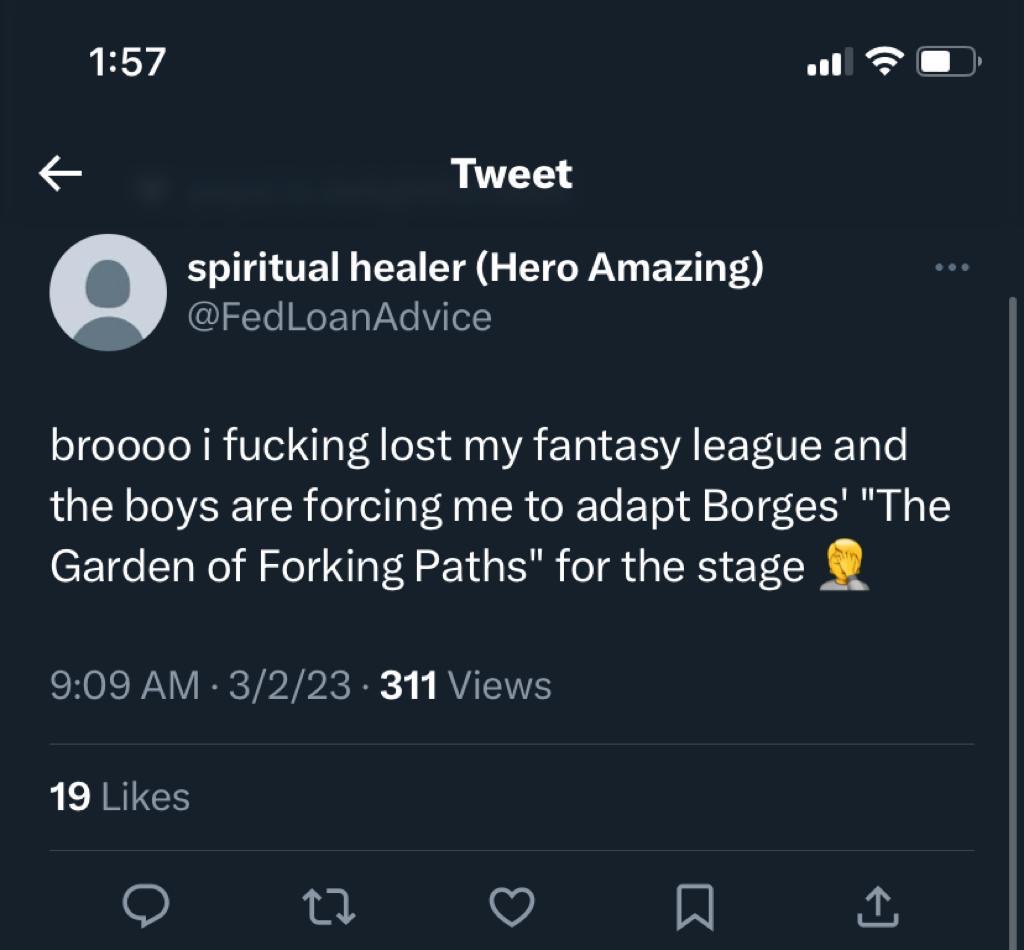
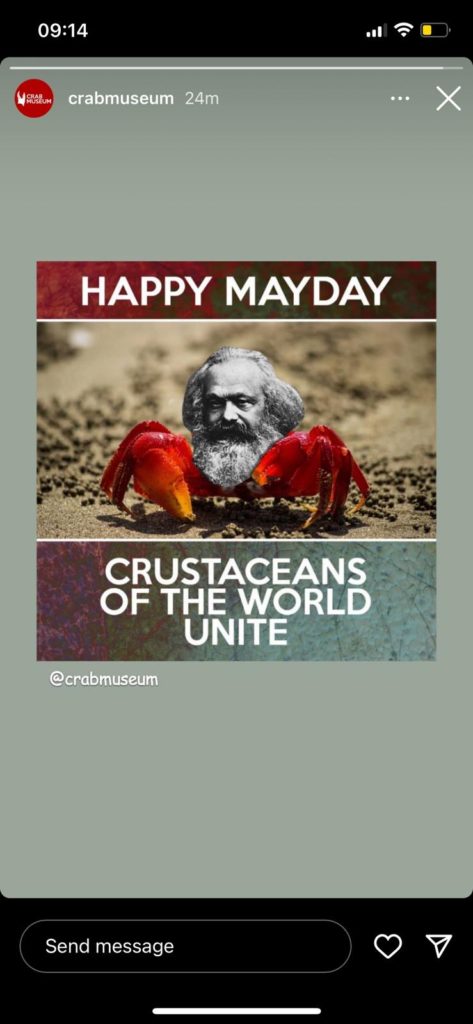
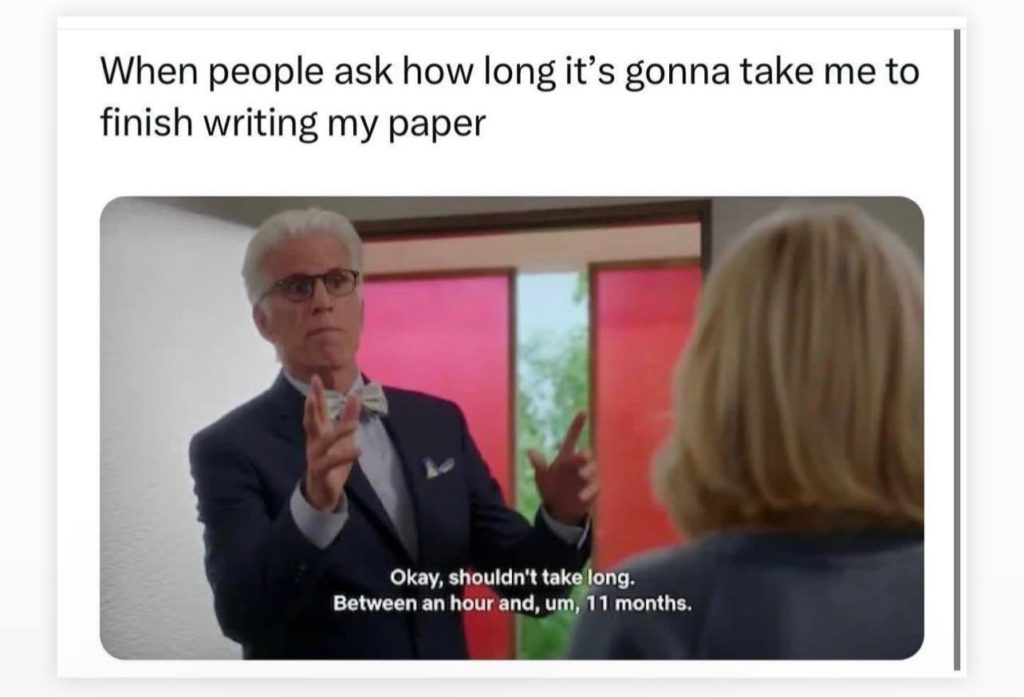


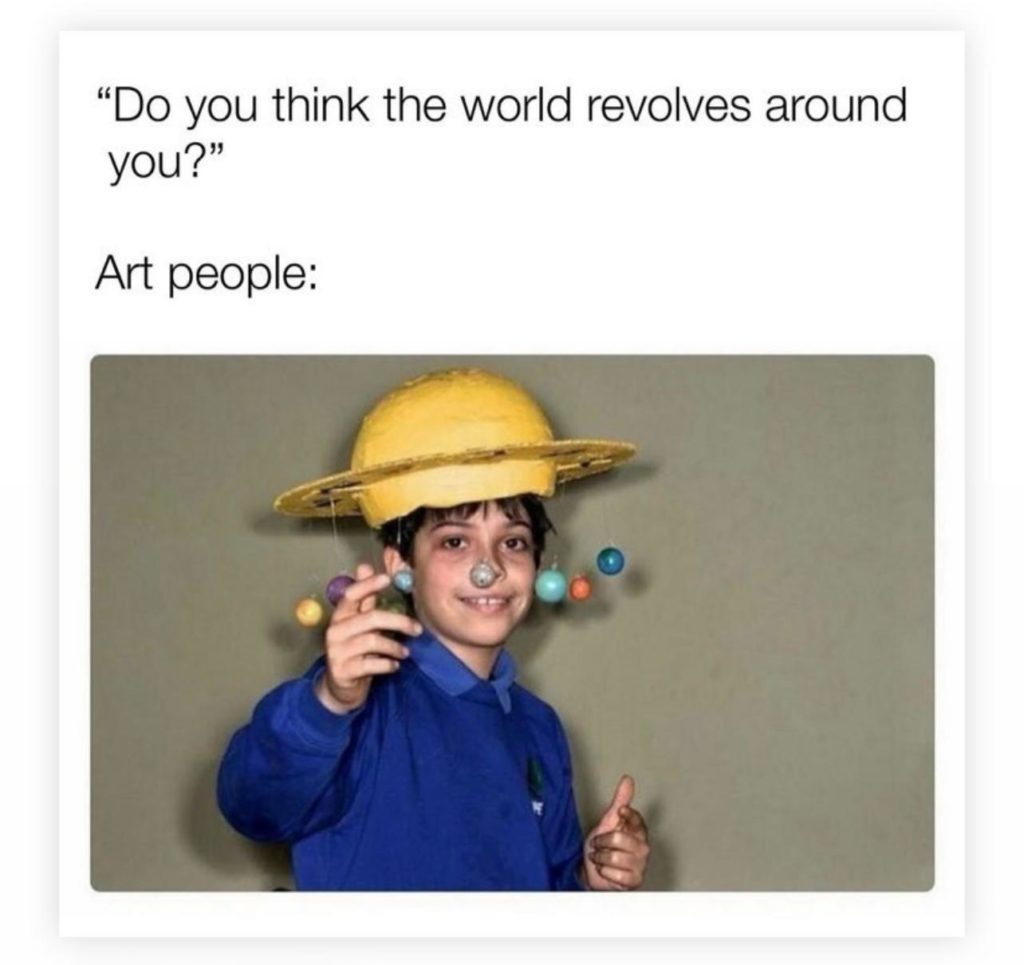
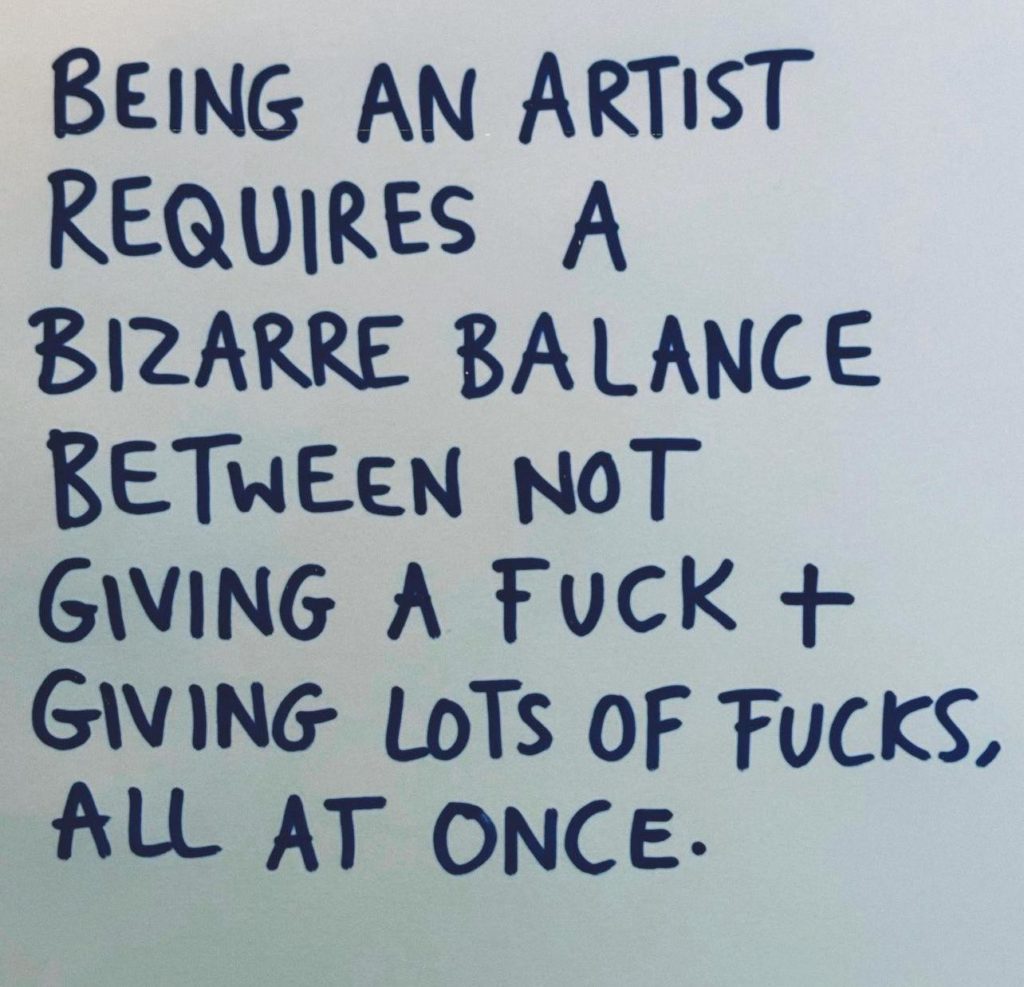

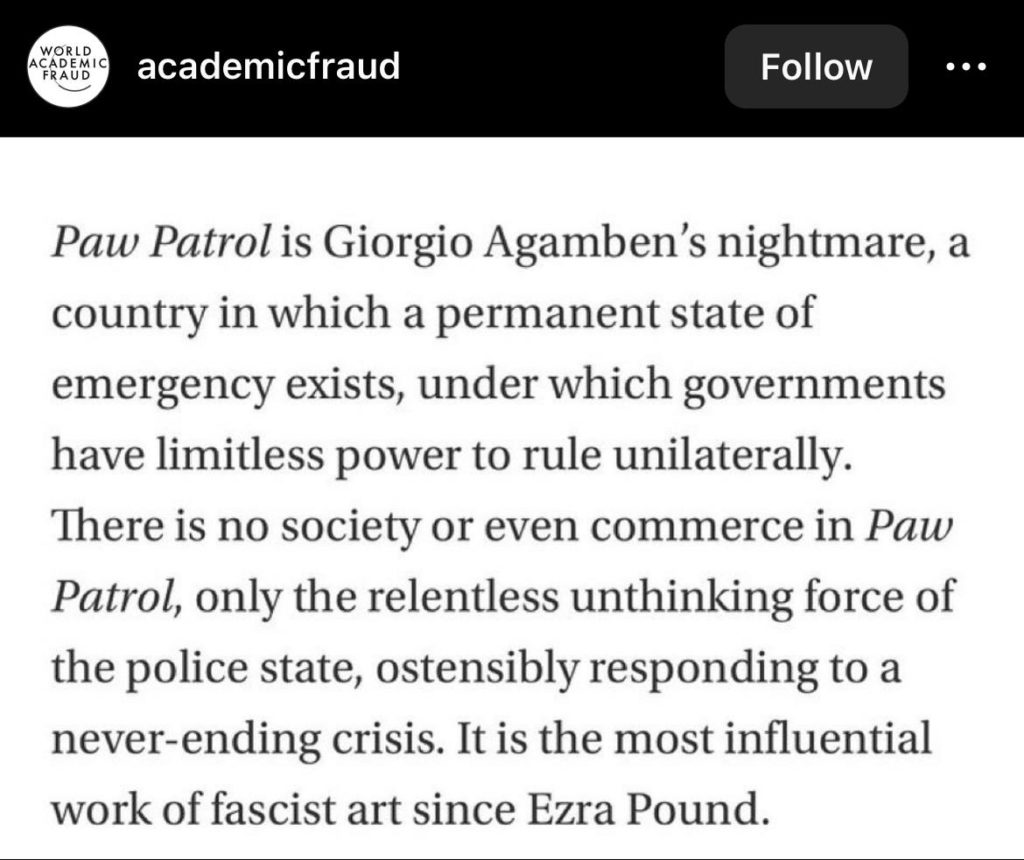

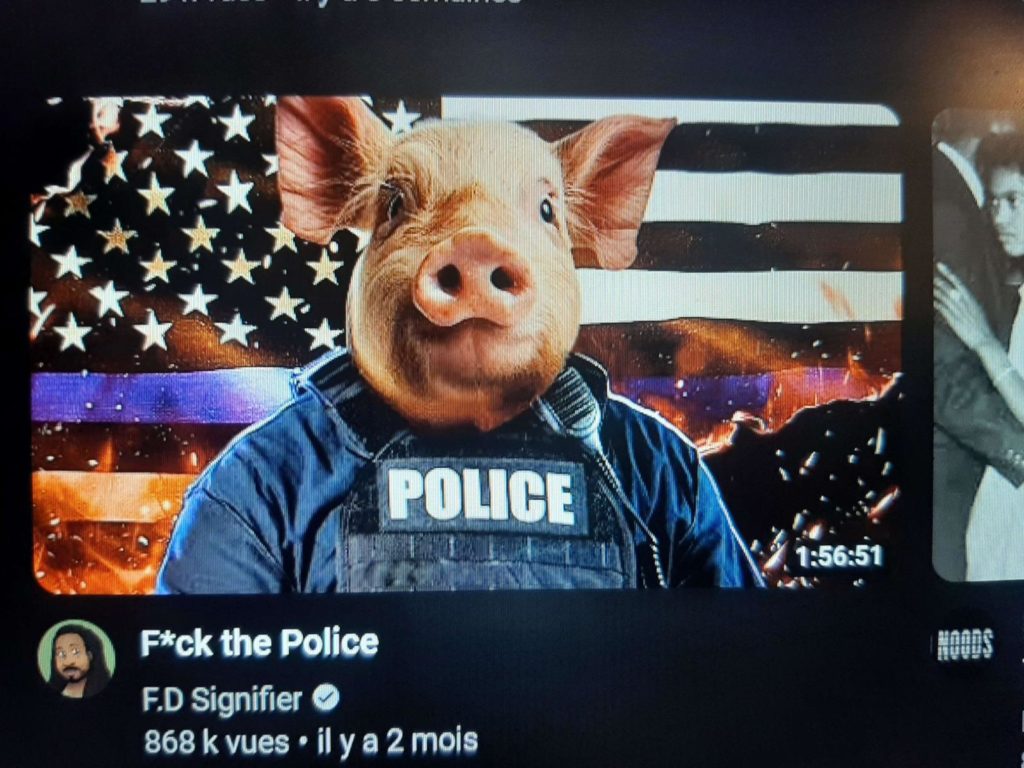


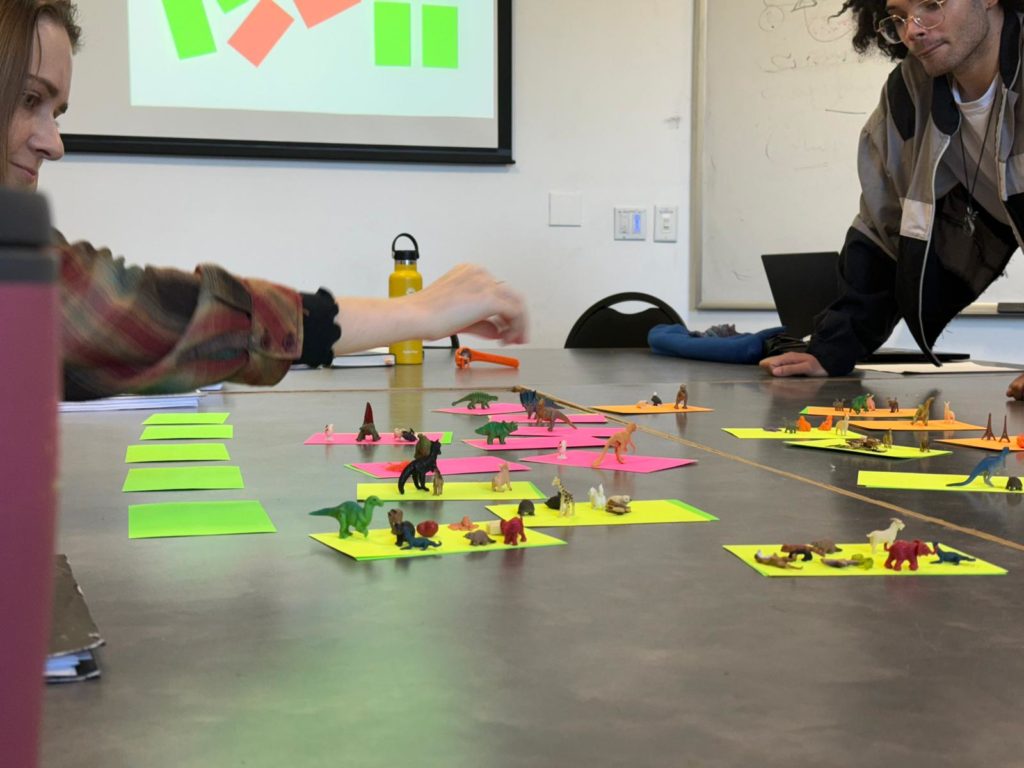
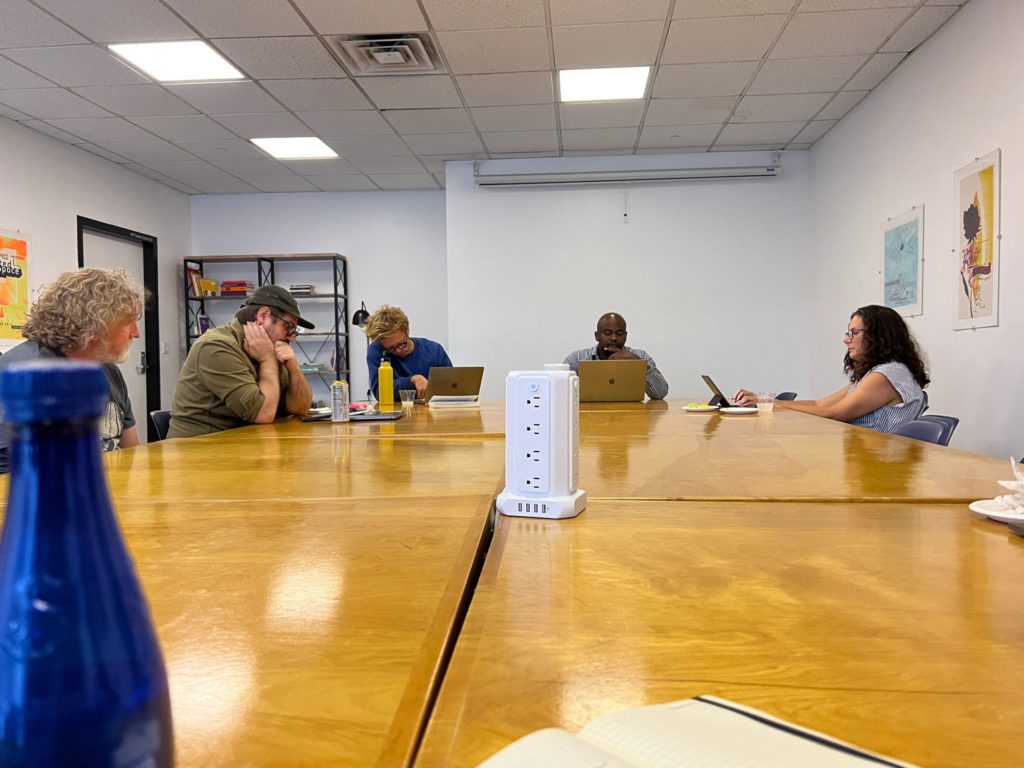
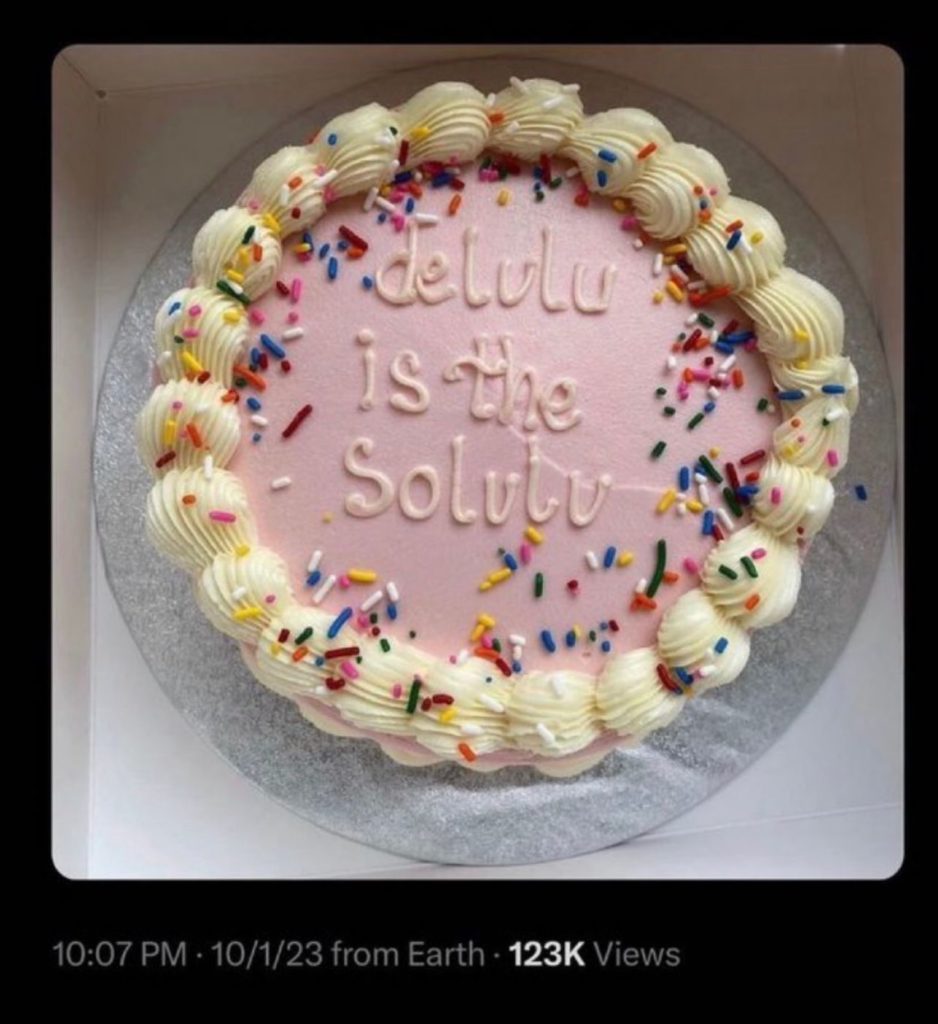

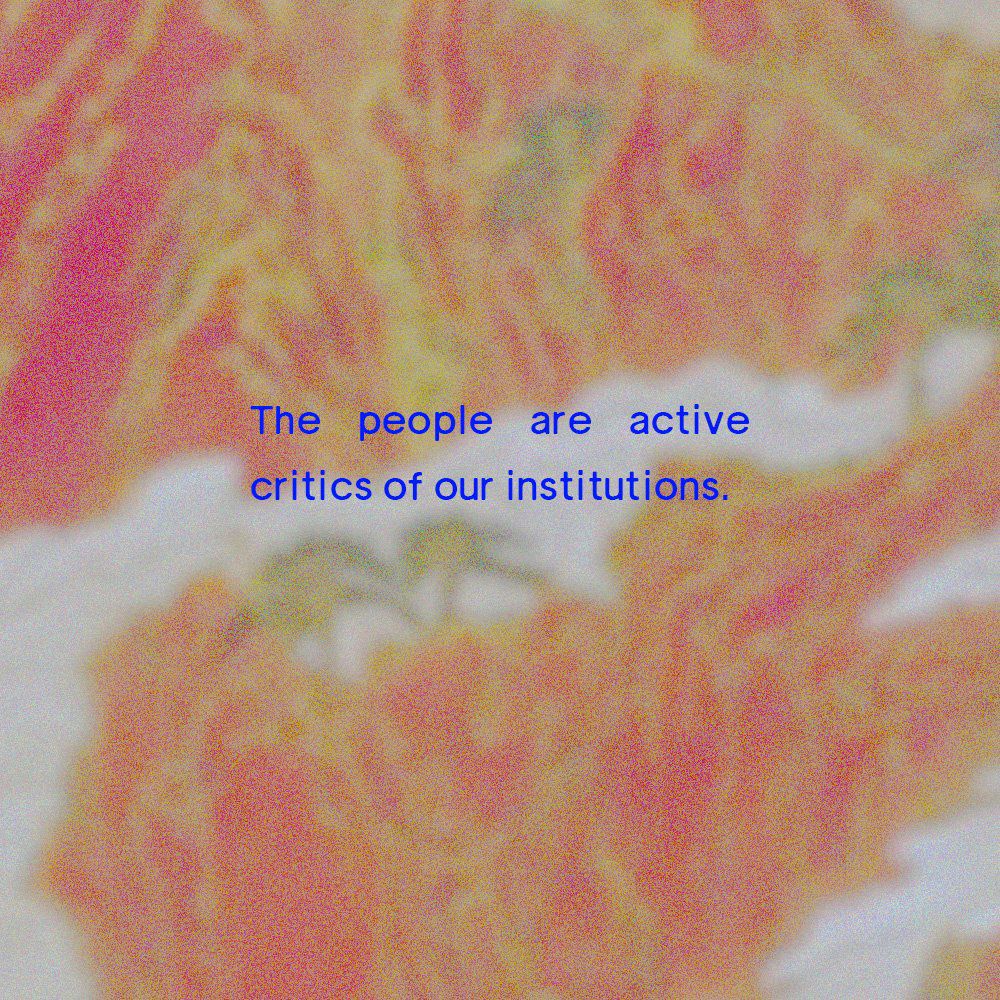
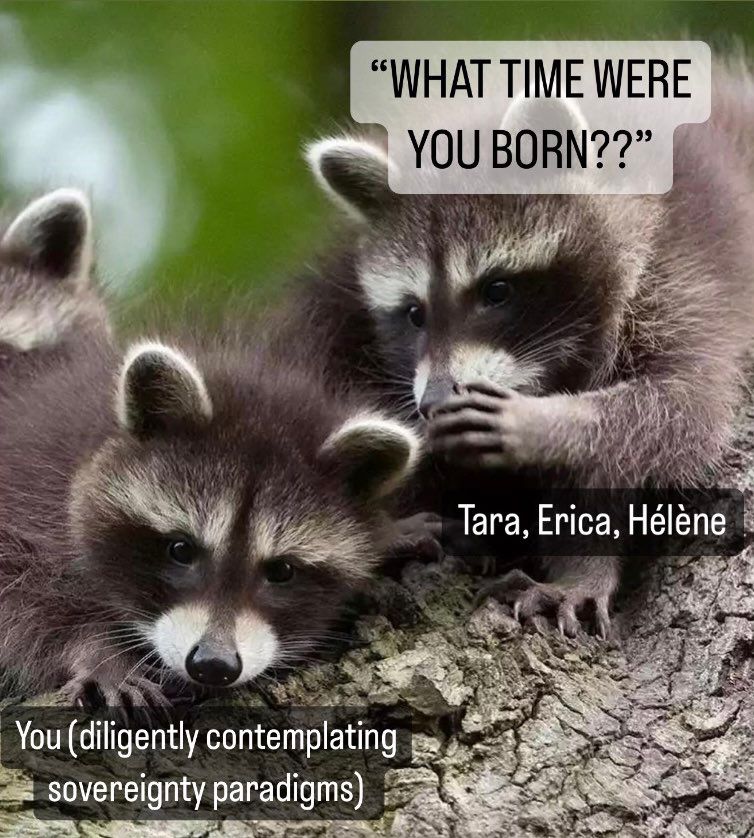
Keeling on Betrayal and Diversity
On October 26th 2018, Kara Keeling, Associate Professor of Cinema and Media Studies at the University of Chicago delivered a public lecture at the West Hollywood Public Library as part of the WHAP series, curated by Sara Mameni on behalf of the Aesthetics & Politics department at the California Institute of the Arts with the support of the City of West Hollywood. The public lecture, was entitled, ‘“I Feel Love”: Race, Gender, Technē, and the (Im)Proper Sonic Habitus. This post responds to ‘ELECTRIC FEEL,’ an essay Kara Keeling published in Cultural Studies journal in 2013.
Introduction
European first wave feminists Marie Gouzes, alias Olympe de Gouges, and Mary Wollstonecraft were perhaps the iconic “composers” of the “motifs” that defined the original territory of feminisms. Such territorializing motifs would become the recurring themes that later feminists would deterritorialize and reterritorialize. These returning themes are akin to the musical form called “ritornello,” current musical sections of a composition, which is used metaphorically by authors such Deleuze and Guattari. The term “ritornello” was translated into English as “refrain”.
Kara Keeling’s article may be considered a ritornello to Gouzes’ and Wollstonecraft’s motifs, and her ideas are a sort of transduction of those inspiring original ones. However, Keeling is also deterritorializing such motifs, calling even to “betrayal” to feminism. Her article could be read as a political manifesto to relaunch feminism, and here I will pay attention to this aspect of her paper.[1] Her “betrayal” has to do with a call to feminism to open its “territory” to other forms of political struggle, something that takes us to the issue of diversity, and the concomitant inevitable adjustment of movement specific political agendas in order to build a broader political movement, one based in bonding rather than in social contracts.
In this essay I will first refer briefly to what we may call first feminism’s ritornellos, underlying an aspect related to Keeling’s emphasis on bonding for building a new political practice. Then I will address Keeling’s concern with diversity and her call to reframe feminism and feminists’ political praxis founded in affects rather than in contracts. Finally, I will try to figure out another refrain based on the ideas of erosion and care that I take from the environmental jargon. I will make a final remark concerning the relevance of Keeling’s ideas for decolonial purposes.
1. First feminisms ritornellos
Although, as already mentioned, Marie Gouzes and Mary Wollstonecraft were who coined feminism’s motifs, they were also inspired in the motifs of the French Revolution—indeed both were supporters and active participants—which, for the sake of brevity, are contained in perhaps the best known French Revolution’s motto: Liberté, Égalité, Fraternité. These motifs defined a territory, and those feminists struggled to include women in it.
After the French Revolution, although freedom (Liberté) and justice (Égalité) have been the concern of politicians, activists and scholars, a sort of permanent refrains, along Nineteen and Twenty Centuries, the third motif Fraternité did not deserve such attention. In my reading of Keeling’s article, I consider that she is returning to and deterritorializing this third motif under the labels of bonding, loving or caring, appealing to an errant feminism. Indeed, she says:
An errant feminism acknowledges the historically articulated specificity of its dynamic and changing interests even as it might betray it in order to continue to carve out feminist refrains, those protective spaces in which it can gather strength for a task to be accomplished, in relation with others, co-creating refrains in common along the way. In what follows, I submit that ‘love’ [Fraternité] as a mode of transduction can animate such an errant feminism […].” (n.d.).
Although not explicitly mentioned, it seems that she assumes that such diverse political movements are struggling against the same power-domination order characterized by “Thatcherism, Reaganism, neoliberalism and the homophobia, racism, classism, transphobia and nationalisms […]” (n.d.). Later she adds “corporate globalization”, and also “cisgender supremacy, American exceptionalism, classism and fear” (n.d.).[2] Keeling’s paper may be seen as an attempt to remember us that something was missed from the French Revolution motto.
2. Concern for diversity (even “betraying” feminism)
“In relation with others”, “co-creating”, are terms that underscore Keeling’s concern with the diversity of current political movements that ought to be considered by a relaunched feminism. Indeed, she explicitly states that “This expansive feminism […] might listen to and for these other existing and emerging movements […].” Furthermore, she considers that such rebranded feminism:
betrays its roots as it seeks to expand its conceptions of ‘freedom’, ‘equality’, ‘humanism’, ‘nature’, ‘gender’, ‘liberation’, ‘sexuality’, ‘ecology’, ‘difference’, ‘race’, ‘matter’, ‘men’, ‘women’, ‘love’ and its imagination about what those can do when feminist movements seek to open up to others rather than to define itself in distinction to or in a dialectical integration of them. […] A feminism that betrays its roots is an errant feminism. Rather than seeking to assimilate others into the terms through which it already has carved out its terrain, an errant feminism allows for the opacity of that which it touches in the world and strives to join with or meld with it, co-creating concepts (or re-invigorating existing ones) in order to address the new circumstance arising from the contact with other expansive movements.
However, Keeling’s proposal departs from modern politics. She does not argue for a new social contract; rather hers is founded in affects,
3. Affects vs. contracts: Keeling’s proposal for an alternative political praxis
Returning to the third term, Fraternité,I consider it to encompass ideas like bond, care and it may be another name for love, for good bonds. Such terms do not take us to rational, logocentric discourses; rather they take us to a world of feelings, sensitivities, affects. It is through love, revolutionary love says Keeling, errant love, that “one opens oneself to others; through errantry, one becomes many, not in order to establish a new Unity but in order to achieve a Multiplicity consistent with the bursting world” (Keeling 2014: s.d.).
Indeed, since Nineteenth Century and through most of Twentieth Century we may see a permanent struggle between those mostly concerned with Liberté and those concerned primarily with Égalité, which even gave rise to the so called Cold War during the decades after Second World War.
It is important to notice that both options were voiced and defended in rational, logocentric terms, but also phallocentric, as projects having rational, i.e.,universal laws based on an invisible hand (Adam Smith) or in class struggle (Karl Marx). As Keeling may reminds us, both were projects aimed to the establishment of a “new Unity”, a universal, timeless, rational Unity, a sort of Grand Master Narrative. From a decolonial point of view, we may add that these projects were also Eurocentric (see Quijano 2000).
Current social movements challenge “capitalism, cisgender and white supremacy, neoliberal multi- culturalism and contemporary geopolitics” (Keeling 2013: 49); however, most of them do not appeal to “modern politics”—like party system—rather they are “tribal” movements, to use Michel Maffesoli’s expression,[3]which value building relations in terms of bonds rather than contracts.
Bonding may be seen as a healing tool there where power relations have damaged the social fabric; it may take us to reconciliation. Overall, bonding is an irrational—i.e.,not logocentric—errant adventure, where errantry may be compared to improvisation, for instance, in jazz music or in contact improvisation dance. Bonding is a feeling, an affect directed toward somebody else—it could be another person, but also a dog, a tree, a river, or a sacred mountain. I may advance here the idea that the lyrics referred by Keeling are precisely notifying us of the failure of the “common sense” based in contracts, i.e.,modern politics, and they tell us that there is another path which has to do with feelings, sensitivity, affects—love—that express an aesthetic (sensitivity)[4]option (see Maffesoli 2007, 2004).
4. Erosion and care
The multiple, diverse social movements referred by Keeling (see quote in page 3) may join efforts if they recognize a basic commonality. One way to point at that commonality is to acknowledge that such movements are struggling against an ethics of dominance and, at the same time, they are raising an ethics of care.
Here I want to suggest a way that may be helpful for the political praxis foreseen by Keeling. Indeed, I find that the concern about environment gave us two contrasting categories to deal with our relation as humans with the environment: erosion and care.
Deterritorializing these terms, I consider that relations of erosion (E) are those where somebody X erodes the life of somebody else Y, where X, Y, E must be considered as algebraic signs to be replaced by all the power relations referred by Keeling.
On the contrary, caring relations are those where there is a mutuality of care (C) and where X, and Y build capabilities for each other. This caring is in first place a feeling, a sensitivity towards alterity (another person, a pet, a river, a sacred mountain, etc.). As I already said, caring may be another name for loving, another motif that may define a territory, both material and subjective, where to return.
5. Remark on Keeling and decoloniality
I would like to end quoting to decolonial thinkers that certainly may endorse Keeling’s spirit. The first quote belongs to Anibal Quijano:
The ongoing globalization is, first of all, the culmination of a process that began with the constitution of America and colonial/modern Eurocentric capitalism as a new pattern of global power. One of the main axis of that pattern of power is the social classification of the world’s population based on the idea of race, a mental construction that expresses the basic experience of colonial domination. […] In fact, all experiences, histories, cultural resources and products ended up articulated also under only one social order around the European and Western hegemony, which concentrated the control of all forms of subjectivity’s control, of culture, and especially of knowledge, of the production of knowledge (201). […] it is time to get rid of the Eurocentric mirror where our image is always, necessarily, distorted. It is time, in short, to cease being what we are not (246). (2000, my translation, my emphasis).
This quote reminds us that there are undesirable refrains. The postcolonial situation may be seen as a permanent ritornello to the laws of the lord, the colonizer, a repetition akin to a neurotic drive. In this regard, cultural-racial emancipation may benefit of joining efforts with certain feminist trends. Indeed, there will not be “decolonization without depatriarcalización”,[5] but neither depatriarcalización without decolonization.
The second quote belongs to Gloria Anzaldúa:
To live in the Borderlands means you are neither hispana india negra española ni gabacha, eres mestiza, mulata, half-breed caught in the crossfire between camps while carrying all five races on your back not knowing which side to turn to, run from; (…) In the Borderlands you are the battleground where enemies are kin to each other; you are at home, a stranger, the border disputes have been settled the volley of shots have shattered the truce you are wounded, lost in action dead, fighting back; To live in the Borderlands means the mill with the razor white teeth wants to shred off your olive-red skin, crush out the kernel, your heart pound you pinch you roll you out smelling like white bread but dead: To survive the Borderlands you must live sin fronteras be a crossroads. (1999: 216-217, my emphasis)
When we talk about diversity, as Keeling does, we usually think about two or more persons or subjects—including environment. Anzaldúa’s quote remind us that “diversity” is also a subjective condition. In this regard, Keeling’s social urge to “co-create” new refrains could consider that there is also a subjective need to inner-create such new refrains. This is an urgent need particularly in Latin America (which we may better call Indo-Afro-Latin-Asian America) where “eres mestiza, mulata, half-breed.”
6. Colophon
In this brief essay I addressed Keeling’s political ideas regarding her proposal to relaunch feminism, and I considered her article a sort of Manifesto. Firstly, I posited Keeling’s ideas as First Wave Feminists’ heirs or successors, underlying Keeling’s deterritorializing and reterritorializing drives, particularly of the refrain Fraternité. Secondly, I underscore Keeling’s “betrayal” call to open the feminists’ territory to other social movements, that is, to diversity. Thirdly, I pointed out Keeling’s main concern about how to build the social fabric within such diverse political movements, and her answer concerning bond, care and love as foundations of political praxis.
As I felt invited by the author to elaborate on her ideas, I suggested a way to search for a jargon that may show the commonality of the diverse social movements, appealing to the ecological or environmentalist use of the terms erosion and care. This part of my essay aims to contribute to the design of a political praxis departing from Keeling’s general schema.
Finally, I proposed the benefits that decolonial theory may get from feminisms like Keeling’s, and the need to depatriarcalize decolonial theory. In this regard, I concluded with Gloria Anazaldúa’s quote, trying to show both her feminist option (close to Keeling’s) and her treatment of “subjective diversity”, something that may enrich Keeling’s ideas.
Eloy Antonio Neira de la Cadena is a graduate student in the Aesthetics & Politics program at CalArts
Bibliography
Anzaldúa, Gloria. Borderlands/La Frontera. The New Mestiza. San Francisco: Aunt Lute Books, 1999.
Federici, Silvia. Calibán y la bruja. Mujeres, cuerpos y acumulación originaria.Madrid: Traficantes de sueños, 2010.
Galindo, María.No se puede descolonizar sin despatriarcalizar: teoría y propuesta de la despatriarcalización. La Paz: Mujeres creando, 2013.
Keeling, Kara. ELECTRIC FEEL. Transduction, errantry and the refrain. Cultural Studies28:1, 2014, pp. 49-83.
Maffesoli, Michel. En el crisol de las apariencias: para una ética de la estética. México: Siglo XXI ediciones, 2007.
Maffesoli, Michel. El Nomadismo. Vagabundeos iniciáticos.México: Fondo de Cultura Económica, 2004 [1997].
Quijano, Aníbal. “Colonialidad del poder, eurocentrismo y América Latina”. In Lander, Edgardo (comp.). La colonialidad del saber: eurocentrismo y ciencias sociales. Perspectivas latinoamericanas.Buenos Aires: CLACSO, 2000, pp. 201-246).
Notes
[1]I will not pay attention to her purportedly use of music to build her argument. Although at first glance I felt amused by her reference to music, on a second reading I realized that music was absent. Her references to pop songs are to the lyrics, and to some details of the theatrical performances, but without reference to music proper. Despite this failure, I consider valid and appealing her political argument.
[2]Her point of view echoes Silvia Federici’s work. See, for instance, Federici (2010).
[3]Actually, there are similitudes between Maffesoli’s and Keeling’s points of view; furthermore, Maffesoli employs the term “Nomadism” which is akin to “errantry”, see Maffesoli (2004 [1997].
[4]Here I borrow Michel Maffesoli use of the term “aesthetics” to refer not only to art works but primarily to sensitivity,i.e.,aesthesis.
[5]This is the title of a book by Bolivian feminist María Galindo (2013).

